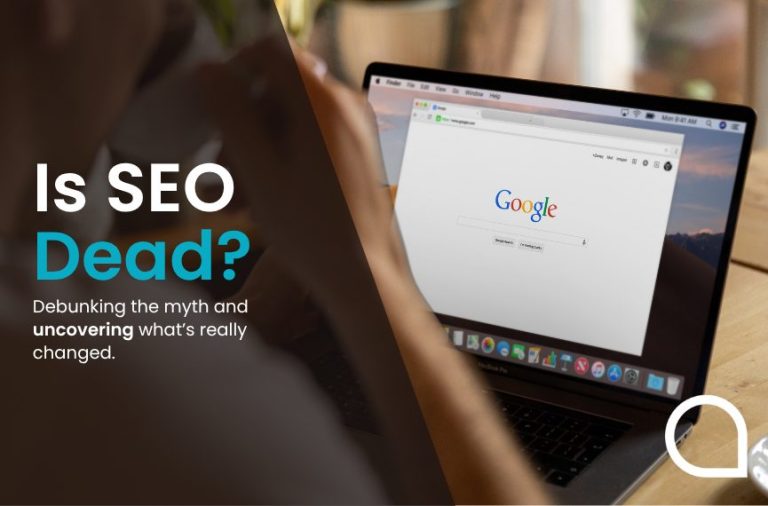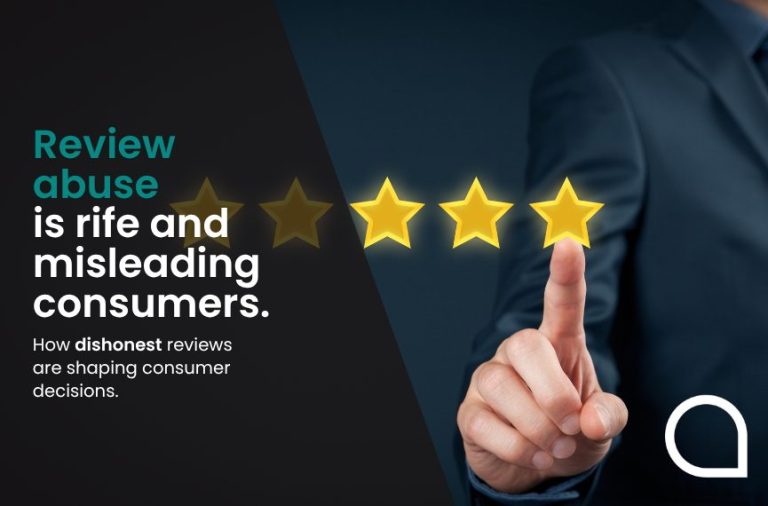
What are the penalties for AI misuse?
Embracing Artificial Intelligence (AI) whether for personal or professional use has clear advantages – and Google agrees. While it’s a common misconception that Google automatically
Mystified by metadata? Thanks to the various types and sheer range of metadata, knowing how to optimise metadata for SEO (Search Engine Optimisation) can be a minefield.
Fortunately, the SEO specialists at Aqueous Digital have accumulated years of invaluable technical expertise, ensuring we can answer all your related questions.
Regardless of whether you’re interested in learning more about the metadata meaning or are keen to explore metadata in HTML (Hypertext Markup Language), we can help.
Below, we explain everything related to metadata including its definition and how Google and other search engines use this information.
Metadata refers to data about data.
For example, images, spreadsheets, videos, and web pages all contain metadata. However, metadata does not describe the content of the data. Instead, it includes a wide range of information like the location, author, creation date, and file size of the data.
There are many different types of metadata. However, the main three types include descriptive, administrative, and structural metadata. While other types of metadata (such as governance, operational, and collaboration metadata) do exist, we explore these key categories in further detail below.
Descriptive metadata helps the user to find and identify the resource clearly and easily. Descriptive metadata for a video file, for example, would typically include the title of the video as well as the runtime of the film.
Regardless of the type of asset, this descriptive metadata should be able to provide an answer to who owns the resource, what the contents include, and when the resource was published.
It is therefore commonly used to support the discovery of objects.
Administrative metadata provides a whole host of useful information surrounding the technical source and management of assets. Often, this includes the file type, size, and access rights. This administrative metadata will also state whether the resource has been modified or archived since its publication.
The primary purpose of administrative metadata is to support the management of resources.
Structural metadata explains the relationship between different parts of a resource and is typically processed by a machine.
This data is particularly useful for identifying the various chapters in a digital book, creating a key, and sorting data sets. This type of metadata is most useful for storage and presentation purposes.
The type of metadata collected varies depending on the resource.
As a result, the metadata tied to an image will be different to the metadata of a website, for example.
Typically, online businesses and e-commerce sites spend a lot of time ensuring their website metadata meets certain requirements as part of their SEO efforts.
Website metadata includes everything from page titles and meta descriptions to meta keywords and meta tags.
Search engines like Google will use some elements of this substantial selection of metadata to help analyse your website and determine the relevance and usefulness of its content for a particular search query.
Some of this metadata can directly influence how Google views and displays your website.
In this veritable sea of metadata, it can be difficult to determine which components really matter when optimising your website for SEO purposes.
Below, we take a look at the various elements of metadata that can be found on a website, highlighting how each one is used by search engines and what that means for building your business’s online visibility.
Meta tags are small snippets of information that are used to describe the contents of a website’s HTML page. They will not be visible on the page itself, but they can be found by web users and search engines alike in the page’s source code.
According to documents published on Google Search Central, Google supports a range of meta tags and HTML attributes as part of their indexing and crawling process.
These tags can tell the search engine more about the page’s content type and character set, how to render the page on mobile, and whether the page contains adult content (and therefore should be filtered by SafeSearch results).
This standard set of meta tags can be used by Google to create rich snippets or sort search results – all with a view to improving the user experience and serving them with the most relevant and useful search results.
You can also include custom meta tags if you want to offer Google more information about your website’s content.
A particular type of meta tag, meta keyword tags provide information on the topic of a page. For example, a car servicing page may have MOT and annual service meta keyword tags.
While search engines like Google used to read meta keyword tags to determine the content of a page, they haven’t used them since 2009. This is due to the negative SEO practice of keyword-stuffing that led to some pages ranking highly for keywords that weren’t relevant to their content.
To avoid these practices, the page’s language and textual content is crawled rather than the HTML meta data.
Another common type of meta tag is the meta description tag.
This is used to describe a page’s content, with the ideal length being between 150-160 characters in total. These meta descriptions are often shown in the SERP (Search Engine Results Page) underneath the relevant page title to give online users a rough idea of the page’s content.
By way of illustrating, a car servicing page may have the following meta description:
‘Searching for affordable and high-quality car servicing near you? Contact Professional Mechanics today to book your vehicle’s annual service or MOT.’
Google and other search engines will read these meta descriptions and may even decide to replace the existing description if it’s deemed poorly written or inappropriate for the page content.
Google can also edit the meta description to ensure it provides a relevant answer to the user’s specific search phrase or even includes a keyword from the search query.
As mentioned above, the only metadata that is useful to Google and will affect your ranking position in the SERPs will be the standard set of meta tags and HTML attributes that Google supports.
While meta keywords and descriptions can provide other user and SEO benefits, meta tags are the most informative type of metadata for Google and other major search engines.
One of the most common queries regarding Google and metadata is whether Google uses meta keywords as a ranking factor.
Put simply, Google does not use meta keywords to rank pages anymore, so it’s not worth spending much time on this tag.
While meta descriptions aren’t a ranking factor for Google, they can still be incredibly useful for your SEO efforts.
This is because a good meta description can boost your search result click-through rates (CTR) and even help your product, service, or brand to stand out from the crowd of competitors.
This is important because a high SERPs ranking only shows your website as an attractive option for the user among a selection of competitors and other relevant, high-quality domains.
The meta description, however, could be the key to getting those click-throughs and conversions that really matter when you want to increase enquiries or sales.
Most of the meta tags that Google supports (such as the ‘notranslate’ and ‘nopagereadaloud’ tags) have a set format and can’t be optimised for SEO.
However, the meta description can be optimised for SEO purposes. If you want to increase the chances of a user clicking through to your website, simply follow the below steps!
The ideal length for a meta description is between 150-160 characters. Any longer than this and it’s likely that your description will be cut off with an ellipsis. Furthermore, the description should be a succinct and easy-to-read summary of the page content, not a detailed essay!
While duplicated meta descriptions may not actively harm the ranking of your website, they won’t help it either and they certainly won’t add any value to the user experience.
A good meta description can help the user to differentiate between two similar products or services at a glance, encouraging them to click-through to the most relevant and useful page based on their search query.
For example, if a user is searching for a swimming pool, size may be a defining difference between two similar products. If the size is mentioned in the meta description, the user can make an informed decision based on their personal preferences when scrolling through the SERPs.
In contrast to title case, sentence case simply refers to writing the majority of minor and major words in the lowercase format – with the exception of proper nouns and the word at the beginning of the sentence. Accepted as the ‘correct’ form of English in writing, it helps to build trust between your website and online users.
Consider customer search intent
When writing a meta description, it’s crucial that you consider the search intent of your target customer. By way of illustrating, if you’re writing a category page for your e-commerce website, you’ll want to show off the sheer range of products and labels within that category.
For example, a category page for ‘foundation’ might include keywords like ‘powder foundation’, ‘liquid foundation’, and ‘cream foundation’. Alternatively, or alongside these keywords, it also might feature brand-related keywords such as ‘Maybelline’, ‘Max Factor’, and ‘L’Oréal Paris’.
Doing research into user search intent keywords (whether the query is informational, navigational, transactional, or commercial) and learning more about how your customers like to shop can help you to determine the right phrases to include in each page’s meta description.
While it’s important to ensure relevant, focus keywords are included in your meta description, you should try to avoid jamming as many keywords as possible into the one meta description. This is because Google wants search results to be useful for online users, and unfortunately, keyword-stuffing means the keywords don’t reflect the page content.
Keyword-stuffing is a negative SEO practice typically used by those with an inaccurate knowledge of SEO in an attempt to get their pages ranking for as many keywords as they can.
However, as mentioned previously, Google and other search engines don’t recognise meta descriptions as a ranking factor.
Instead, a comprehensive content strategy is likely to be far more beneficial when it comes to getting your pages ranking in the SERPs.
Keen to learn more about content strategies, metadata, and how you can optimise this information for SEO purposes?
Regardless of whether you’re new to SEO or want to enlist SEO professionals to take control of your current efforts, don’t hesitate to get in touch with our talented team today!
Here at Aqueous Digital, we specialise in paid and organic SEO, reputation management for high-net-worth individuals, and paid search – including Google Ad campaigns. Our award-winning agency supports a wide range of business dotted across the North West of the UK as well as further afield.
To contact our Sheffield team or find out more about the various SEO services on offer at Aqueous Digital, feel free to give us a call on 0800 285 1424. Alternatively, you can also send your enquiry via email to hello@aqueous-digital.co.uk or using our convenient online contact form.
However you decide to reach out, one of our SEO specialists will be able to arrange your free, no-obligation consultation at a date and time that works for you.
During this consultation, we’ll find out more about your SEO and marketing requirements, then advise the best way forward.
Why pillar pages are the foundations of a successful content strategy
How to conduct a thorough digital marketing audit of your website
Why digital marketing is important to business owners
Digital marketing trends to get ahead of the curve
Short-form vs. long-form content: Which is better for your website?
Digital marketing channels: Which one should you choose?
Content Optimisation: How to improve existing content on your website
How AI is becoming more prominent in digital marketing
How to create a results-driven digital marketing campaign
SEO for YouTube: How to optimise YouTube videos for search
How to boost your website’s domain authority
What is Evergreen Content and why does it matter for SEO?
Why we build backlinks to your website
How to develop a content strategy for SEO
Content is King. What is content marketing?
Creating great content: How to write for SEO
How digital marketing has changed over the years
How video content can elevate your website
Top 20 Facts about Manchester You Never Knew
Aqueous Digital’s Ultimate Guide to the cost of SEO in the UK
Aqueous Digital’s Guide to the Top 501 SEO and Digital Marketing Terms
How video content can elevate your business

Embracing Artificial Intelligence (AI) whether for personal or professional use has clear advantages – and Google agrees. While it’s a common misconception that Google automatically

Whether it’s Google’s AI (artificial intelligence) Overviews or AI-powered SEO (search engine optimisation) tools, this emerging and fast-developing technology has fundamentally altered the SEO landscape.

The widespread creation and adoption of AI (artificial intelligence) tools has undoubtedly changed the way that search engine optimisation (SEO) services for websites are performed.

While Google enjoys the biggest share of the search engine market (around 90%, according to StatCounter), the second-largest search engine, Bing, shouldn’t be overlooked. Following Bing’s

Trust: online searchers are ready to give it, and businesses want to earn it as quickly as possible, but how can you accurately assess the

I wrote recently about the ridiculous situation of being asked to leave a review for a parking space, but what I encountered yesterday is, I